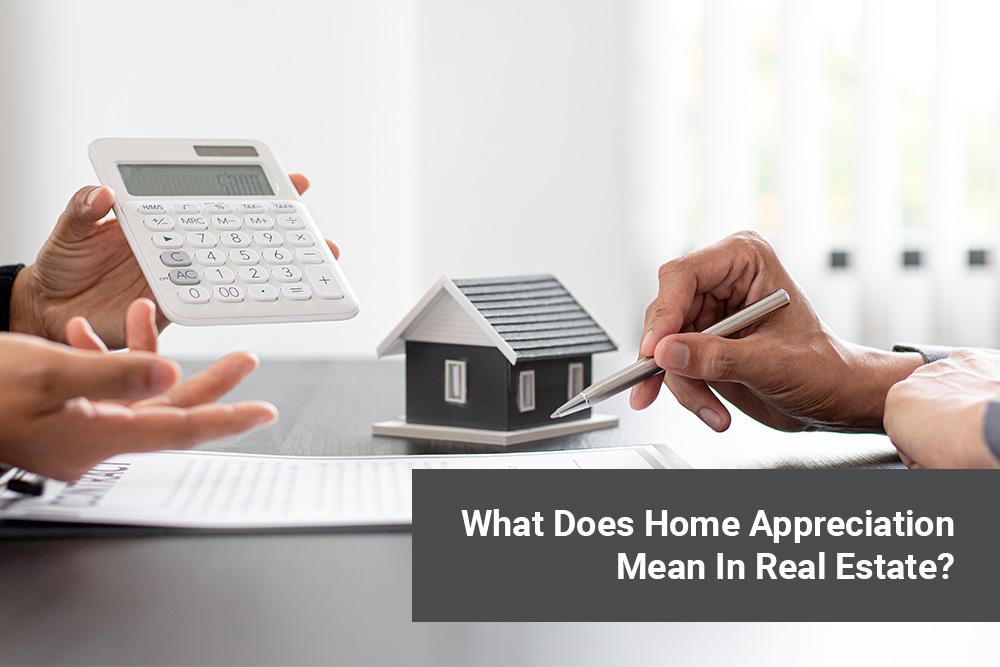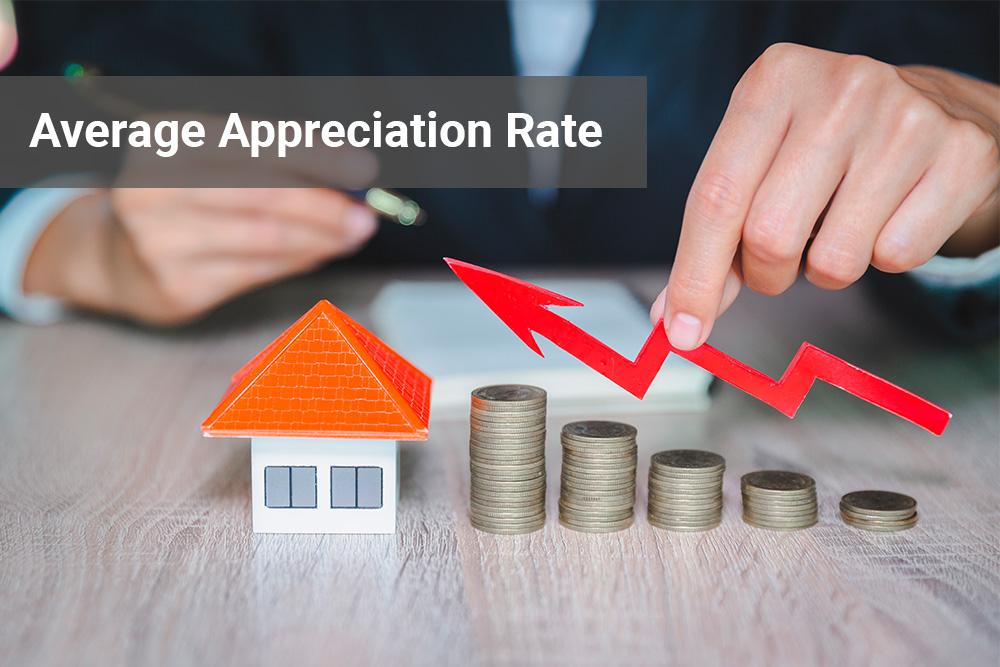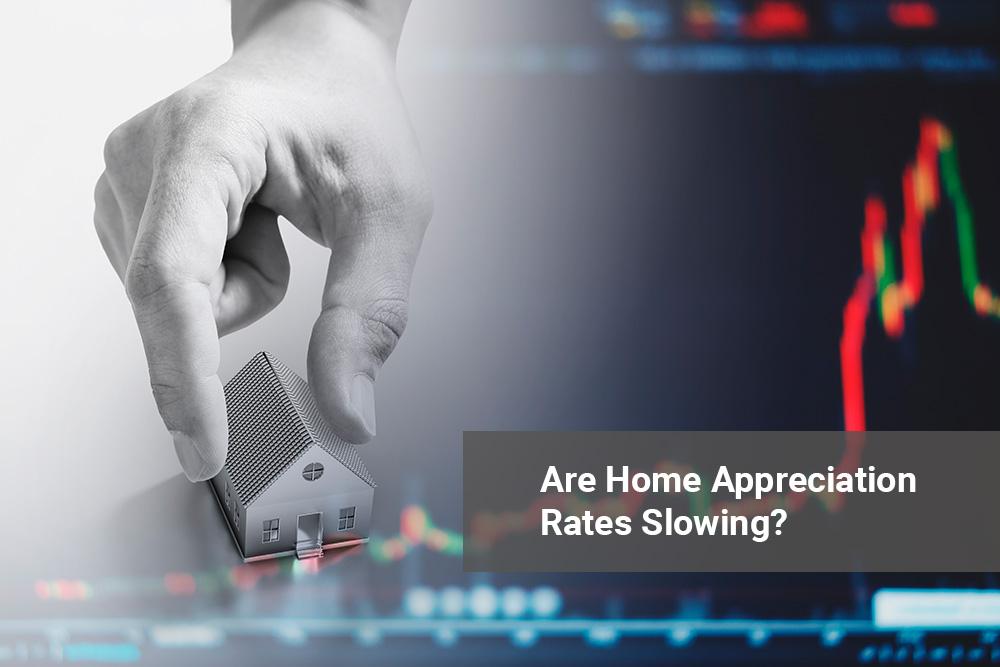What Does Home Appreciation Mean In Real Estate?

Whether you’re looking to buy a home, sell a home, or you simply want to know more about real estate terminology, the word “appreciation” is an important part of your real estate vocabulary. A property’s appreciation refers to the amount the property’s value increases over time.
Appreciation can be caused by external factors along with your home improvement projects. Mortgage brokers in Las Vegas can tell you about appreciation and how to add value to your property.
Understanding Home Appreciation
Appreciation is the increase in your property over time. The home’s value may be influenced by inflation, more job opportunities in the market, and development in the area where you live. While you can’t necessarily control all these factors, you can take steps on your own to raise the value of your home through improvements. Another benefit of making home improvements is that it generally increases your home equity if you have mortgages. However, a mortgage company in Las Vegas can tell you about the gain you can expect in home equity with your current mortgage.
Average Home Appreciation Rate Per Year

The average appreciation rate for homes nationwide is 3% – 5%. Many people don’t realize that the value of your land is the primary factor in determining the overall value of your property and your home. Although land value and property value may be predicted to rise by a certain amount in a set period of time, such as over the course of a year, unforeseen circumstances can creep up and affect appreciation rates.
The COVID-19 pandemic of 2020, for example, changed predicted rates for appreciation in less than six months. In January 2020, experts estimated that average home values would be about 3.9%. However, just four months later, appreciation rates were only 1.9%. Along with facing below-average predicted appreciation rates for a given year, you may also find that your property’s value declines over time, which is called depreciation.
Depreciation can happen for multiple reasons, which are often attributed to neglect of the property. Your property’s value may drop due to a lack of renovations and care or if you don’t keep up with general property maintenance. You don’t need to spend a fortune on home upgrades and property maintenance, but improving your home with loans in Las Vegas will give you the upper hand when assessing the home’s and your property’s value.
How to Determine Property Appreciation
The simplest way to figure out appreciation for your property is in percentages. Fortunately, the calculation is simple. You simply need to divide the change in the home’s current value by its initial cost. Then, multiply the resulting number by 100. It’s also relatively simple to figure out the home’s current market value in dollars. To find that number, subtract the home’s original value from its current value. If the home initially cost $150,000, for instance, but its current value is now $180,000, you can conclude that the home has an appreciation value of $30,000.
What Influences Appreciation?

Two primary factors influence a home’s appreciation. They are future market growth and the current home value. Knowing the current value is key, as you’ll need to know what the property is currently worth to determine how much its value has increased. Along with knowing the appreciation rate at present, you can also do some investigating to estimate appreciation rates in the future.
To get future appreciation rates, multiply the home’s current value by the future market growth factor. That will give you a good idea of how much you can expect your property’s value to rise in a specific time. While average appreciation rates consider properties nationwide, your specific location can affect appreciation rates. Local appreciation rates can vary tremendously between towns and even neighborhoods. The same property type in one location can have a much different value than one close by. Another factor that can affect value is interest rates. Properties with lower interest rates tend to inspire people to purchase properties sooner rather than later, increasing their demand and ultimately affecting appreciation. (Read more on how does the fed rate hike affects mortgage rates.)
Adding Value to Your Home
Now that you know there are options available for personally increasing your home’s value, you probably want to know the steps you can take to make your house worth more. Here are some of the most effective options:
- Upgrade the exterior
- Improve the interior
- Energy efficiency
- Update the technology
The exterior of your home is the first thing that prospective buyers or renters will see. If the home looks like it needs updating, you should address those issues before you offer your house to the public for rent or sale. Similarly, if the interior is not in excellent condition, it should also be upgraded before you try to rent or sell the home. If your home looks outdated or worn out on the inside, you may find it difficult to get the price that you are asking.
Although energy may not seem like a major concern, making your home as energy efficient as possible can increase its value and lower monthly payments on other related expenses, including electricity, gas, and other utilities. Keeping up-to-date with technology in your home can also add to its value. That includes installing simple, effective, and even safety-oriented devices such as security systems and thermostats. The more you can get your home to fall into the category of a “smart home,” the more likely you are to see an increase in its value.
Finally, the saying that “bigger is better” applies to many situations in modern society, and real estate is one of them. Therefore, one way to boost the value of your home is to make it bigger. Adding on square footage to the property can increase its value and make it more appealing to potential renters or buyers. Building on to the existing house, including adding interior or exterior space, or constructing a guest house on the property can add value and increase the home’s sale or rental price. Although adding on to your home can increase its value and demand, it is also true that not everyone has the cash available to make the upgrades and improvements that they want to have to their home. If you need additional funds to upgrade your home, consider applying for loans in Las Vegas. You can also ask others you know, including relatives, if they have extra funds available for you to borrow.
Are Home Appreciation Rates Slowing?

The pace of appreciation is indeed slowing. However, that is healthy for the market, as John Drennen explains. Positive appreciation means home values will rise, and a slower rate does not mean that home values will drop. Instead, it just means that their values will still increase at a slower pace.
To learn more about home appreciation rates and what it means for you as a homeowner, consider experienced mortgage brokers in Las Vegas when you’re searching for a “loan officer near me” to help you understand home’s value and improve your home’s worth.









